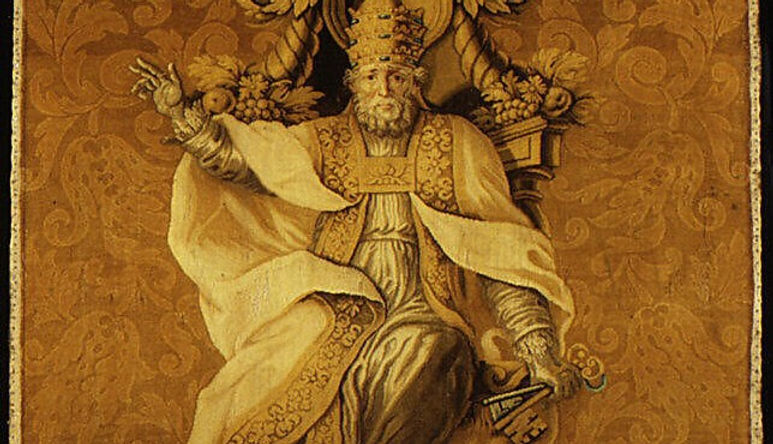Marius Mercator
Apostolic See
"(The tractoria) was sent to Constantinople and throughout the world, and was strengthened (roborata) by the subscriptions of the Holy Fathers. Julian and his accomplices refusing to sign it, and to consent (consentaneos se facere) to those Fathers, were deposed not only by imperial laws, but also by ecclesiastical decrees, and banished from all Italy. Many of them came to their senses, and being corrected of their errors, returned as supplicants to the Apostolic See, and being accepted, received back their sees." (Commonit vi,10 and ib PL 48 p. 107 [early to mid 5th century]).
“The same Celestius, thrown out of Constantinople, quickly went to Rome in the time of the late Bishop Zosimus. He was there questioned (according to our copies of the acts), and being terrified by such an examiner, he gave rise to hope by numerous answers, promising that he condemned those chapters about which he was accused at Carthage. For he was earnestly ordered and expected to do so, and for this reason was gently treated by that holy priest, and procured from him a kindly letter to the African bishops, which kindness he still abuses, deceiving the ignorance of many.”
“When the African bishops replied, exposing the whole cause which had been thrashed out there, sending the acts of their councils which had been held about him, whether present or absent, he was then called for a fuller hearing, that he might hasten to fulfil his promise of condemning the aforesaid chapters, and so be absolved from the excommunication he had undergone from the African pontiffs. But not only did he fail to appear, but he fled from Rome, and for this he was condemned by the aforesaid Bishop Zosimus of blessed memory in a very long and complete document. In this document, the chapters of which Celestius was accused are contained, and his whole case, and that of his more depraved master, Pelagius, is narrated. We have copies of these writings, and we note that similar copies were sent to the bishops, to the churches of the East, to the diocese of Egypt, to Constantinople, Thessalonica, and Jerusalem…
“All the above-quoted chapters are contained, as was said, in that letter of the late Bishop Zosimus which is called "Tractoria", by which Celestius and Pelagius were condemned. This letter was sent to Constantinople and throughout the world, and was strengthened' by the subscriptions of the holy fathers. Julian and his accomplices refused to sign it, and to consent to those fathers. They were deposed not only by imperial laws, but also by decrees of the Church, and banished from all Italy. Many of them came to their senses, and, being corrected of their errors, returned as suppliants to the apostolic see, and being accepted received back their churches. Celestius and Pelagius were not for the first time condemned by Zosimus, of blessed memory, but by his predecessor Innocent, of holy record, by whom Julian had been ordained. And Julian after their condemnation, until the death of Innocent, remained in his communion, and persevered in the sound opinion ; and since he communicated with him who had condemned Pelagius and Celestius, doubtless he himself condemned them; and what he wants now, and what he complains of, we do not know.
“...Now when they were condemned by Innocent of holy record, the position was as follows: after the devastation of Rome, Pelagius was living in Palestine. His books were found by certain studious bishops in which he seemed to have written many various things against the catholic faith. These books were sent to Africa with letters to the fathers and bishops, and they were read at three councils which were summoned. After that reports were sent to Rome, and the books were sent there, and an apostolic ruling was returned to the said councils, excommunicating Celestius and Pelagius. I have in my hands a copy of these writings.”

